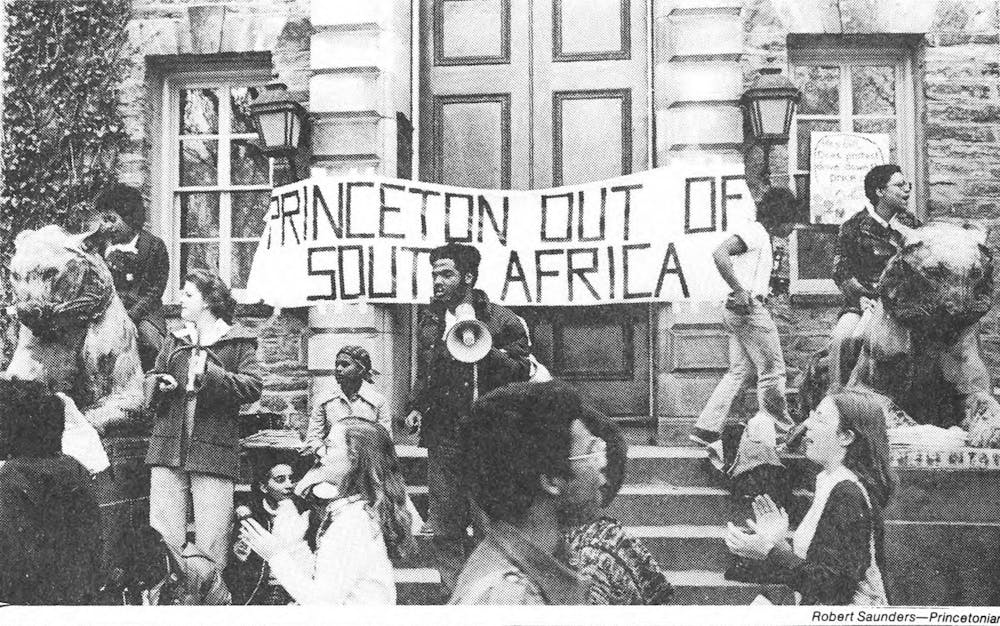Welcome to Princeton! Next Fall, if you so choose, you will walk through FitzRandolph Gate with hundreds of new friends and classmates and become a Princeton Tiger. As you enter this new phase of your life, my fellow classmates and I, who walked through those same gates just a year before, will be there cheering you on. But now that you’ve won the admissions game, it’s time to leave otherwise pointless resume-building activities behind, including individualistic, ineffective activism.
Many of you may have padded your resumes with advocacy fluff. Some of you participated in or organized panels of speakers approved by mega-foundations. You might have even founded your own nonprofits. While these may have an upstanding goal, and also may look good on an application, they fall short when it comes to driving real justice and social and political change, which requires solidarity, people power, and challenging the system. Coming to Princeton, you’re stepping onto a moving train: There are urgent issues that demand student engagement on campus, and there’s a responsibility for Princetonians to follow our informal motto and act “in the service of humanity” in the broader world. Now is the perfect time to step off the hamster wheel and become an effective activist.
A powerful blend of solidarity and disruption of the status quo drives successful activist campaigns. This is a stark contrast with conventional high school resume-building, where individual achievement and adherence to the system are rewarded by the system itself. The truth is that it’s not about the “power of one” — dismantling systemic injustice is work beyond the reach of a solitary individual. Instead, the fight for change hinges on allying with others, because as anthropologist Margaret Mead said, “a small group of thoughtful committed citizens can change the world — indeed, it’s the only thing that ever has.” Further, it’s imperative to disrupt the status quo, whether through pointed inquiries that make complacent decision-makers uncomfortable or sit-ins that stall their work until they address your demands. As a Princeton student, your voice and energy are vitally important to campaigns that do this work. By standing in solidarity with your fellow students, you can bring about a more just and equitable campus — and a better Princeton.
Currently, an abundance of initiatives, led by passionate student groups outside of the University’s formal establishment, tackle issues that require coordinated student pressure to get the University’s attention. There’s the fossil fuel divestment fight, led by Divest Princeton, pushing for Princeton to divest from fossil fuel companies and end the conflict of interest created by the University’s acceptance of funding from fossil fuel companies for climate-sensitive research. That organization has won important fights (activism works!), but there’s a lot of work still to be done. There’s Princeton’s Young Democratic Socialists (YDSA), who ally with labor and working people and support unionization efforts in and around Princeton. And there are groups working outside of the Princeton ecosystem like Students for Prison Education, Abolition, and Reform (SPEAR), a community of students working for carceral justice, and many more groups. We can and must be those people again, despite administrative obstruction and distractions.
But most Princeton students don’t get involved. Activist communities are vibrant and dedicated, but small. Princetonians aren’t even generally engaged with inside-the-system work: many elections for class government aren’t even contested, and election turnout rates are generally low. Students don’t have a strong culture of organizing to effectively demand that the University do anything to help us. There are many reasons for this: an administration hostile to progressive dissent, an emphasis on service as a way to support systems rather than challenge them, and the all-too-easy slide into the comfort of life in the Orange Bubble. One of the highest-profile campus conversations, the debate around whether free speech is appropriately protected on campus, is mostly an invented problem that only serves to distract from more important topics, but the University will do its best to focus on it — one of my class’s required orientation events was centered around it. Don’t be fooled.
Princeton students have a storied history of student activism, from massive protests demanding divestment from South African apartheid to sit-ins for racial justice from decades past and recent years. We can and must be those people again, despite administrative obstruction and distractions.
We can do the good work for justice beyond campus, as well. For some, a Princeton education is just a stepping stone to wealth, often under the guise of helping others. But the progress of humanity is not inevitable — we must work for it. And with the immense privilege of being a Princeton student comes immense power — if we recognize our own power — to shape the lives of the Princeton community, and perhaps even the course of humanity.
So welcome to the moving train. Join us in fighting to steer the train in the right direction. I look forward to seeing you around — at Divest Princeton meetings above the student-run Coffee Club, asking questions at meetings of the Council of the Princeton University Community (CPUC), and at a protest at Nassau Hall.

Eleanor Clemans-Cope (she/her) is a first-year from Rockville, Md., intending to study economics. She spends her time making music with Princeton University Orchestra and good trouble with Divest Princeton. She is an Associate Opinion Editor. She can be reached on Twitter at @eleanorjcc or by email at eleanor.cc@princeton.edu.









